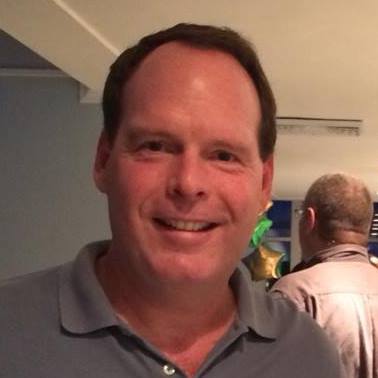A guest post by Lou J. Berger.
As other writers have mentioned to me, sometimes life manifests situations so improbable that, if you were to write them into a story, no reader would accept them as plausible.
And yet…
I walked through the dealer room at Reno’s WorldCon, showing my girlfriend Kelly around, marveling at the artist displays, looking around to see if I could spot Bob Eggleton, a tremendous artist that I’ve only met via Facebook, never in real life.
My eye lights upon a grinning, elfin woman with graying hair and the eyes Yoda only wished he had had, as expressive as a sunset. She spies me and calls out my name and wraps me in a hug that conveys love and adoration and respect, then calls over her husband, Joe Haldeman.
Gay Haldeman is an angel among people, and she has an encyclopedic memory, knows everybody, loves everybody, and is one of the nicest folks I know. Without my being able to figure out how, she manages to convince me that she considers me one of the most important people she’s ever met. I know, in my soul, that I am just another cog in the gears that permeate her life—and a small, insignificant cog at that—but she has that magic touch, that personality that the best of the best seem to have.
Joe smiles at me and shakes my hand, I introduce them both to Kelly, and Gay says, a hand upon my forearm, “You will join us for lunch, won’t you?”
I glance at Kelly, she nods, and I say, “Of course!”
A rare cloud crosses Gay’s unlined brow. “Oh. Do you mind if I invite another person to join us?”
Well, I had been hoping for some one-on-one time with Joe and Gay, but any friend of hers…
“Sure,” I reply. “The more the merrier!”
Gay’s cloud dissipates and sunlight radiates from her again. “Great! I’m sure Larry will love to meet you.”
Larry. That’s such a familiar name, especially the way she says it. I open my mouth to clarify, because, after all, there is no way it could be… “Oh, here he is!” Gay cries out, grinning, looking past my shoulder.
I turn and, in true Ewok form, there strides one of the greatest giants of SF-dom, Larry Niven. It is him. Of course it is him.
He’d passed me in the hallway at Denvention, a couple years earlier, and I’d said, upon seeing him, “Shoot! I was hoping to attend your panel!” Without breaking stride, he shot back. “Well, you missed it.” And then he walked on.
So we walk, the Haldemans and I and Kelly, with Larry Niven beside me. I’m trying to be cool, but this is the man from whose brain all those books I read in high school sprung. He’s the Ringworld Engineer Deluxe, the guy who invented the Mote, this is Larry freaking Niven!
“You’re a writer,” says Larry to me. (See? I’m calling him Larry. Like we grew up together. Like we’re old pals. Like I have any damn right to be walking beside him, this ordinary-looking man whose prose has put me on the badly-colored carpet of a Reno convention center, walking toward an unimpressive cafe in an adjacent casino.) “Tell me a story,” he finishes.
I take two careful, measured steps. I think of the works I’ve written to date, the stories I’ve excised from my fertile imagination, the tortured words I’ve yanked out of my brain and through my fingers and onto the page, the single story I’d sold. Worthless. In the company of a god, my best work is fool’s gold, iron pyrite glittering with false richness, not worthy of discussion.
“I’m sorry, Larry,” I stammer, after a while. “I’m a little star-struck. My brain isn’t working quite right.”
“It’s okay,” he says, patting my shoulder. “Happens all the time. Give it a moment.”
I walk alongside Larry, watching the carpet flow beneath our feet, and we walk into the casino, my hand clutching Kelly’s. We sit down for lunch and I listen to Larry and Joe talk about old times, laughing and reminiscing, and I slowly relax, beginning to process that what’s happening around me, this august company I’m part of, is because of Gay, not because of anything I’ve ever done.
She’s the catalyst, the one who keeps her eyes peeled for the spark, that ineffable quality in a writer, just starting out, that signifies some semblance of promise. And like any spark, the spark she sees is tenuous, hesitant, and should, as most sparks do, simply wink out. She captures it, fans it, finds a home for it, and nurtures it into a small flame.
Then she brings that flame into the firelight and welcomes it home.
I’m not sitting with Joe Haldeman and Larry Niven because I’m some sort of brilliant writer. I’m sitting with them because Gay believes in me.
I lean across Kelly and catch Gay’s attention while Larry reminds Joe of something arcane and brilliant. “Gay,” I whisper. “Thank you.”
She peers at me through her glasses and a warm smile crosses her face. “Thank you for joining us, Lou.” She turns to Kelly. “And you too, Kelly.” She gazes at us for a minute and then turns her face back to Joe.
Her eyes go soft as she looks at the man she loves.
I squeeze Kelly’s hand and we eat our lunch in the company of giants.
 Guest Writer Bio:
Guest Writer Bio: Lou J. Berger lives in Denver with three kids, three Sheltie dogs, and a kink-tailed cat with nefarious intent. He’s an active member of the Science Fiction and Fantasy Writers of America, has been professionally published in short form, and is writing his first novel, a non-genre YA book set in 1978’s North Carolina. Take a few moments to visit his website.


